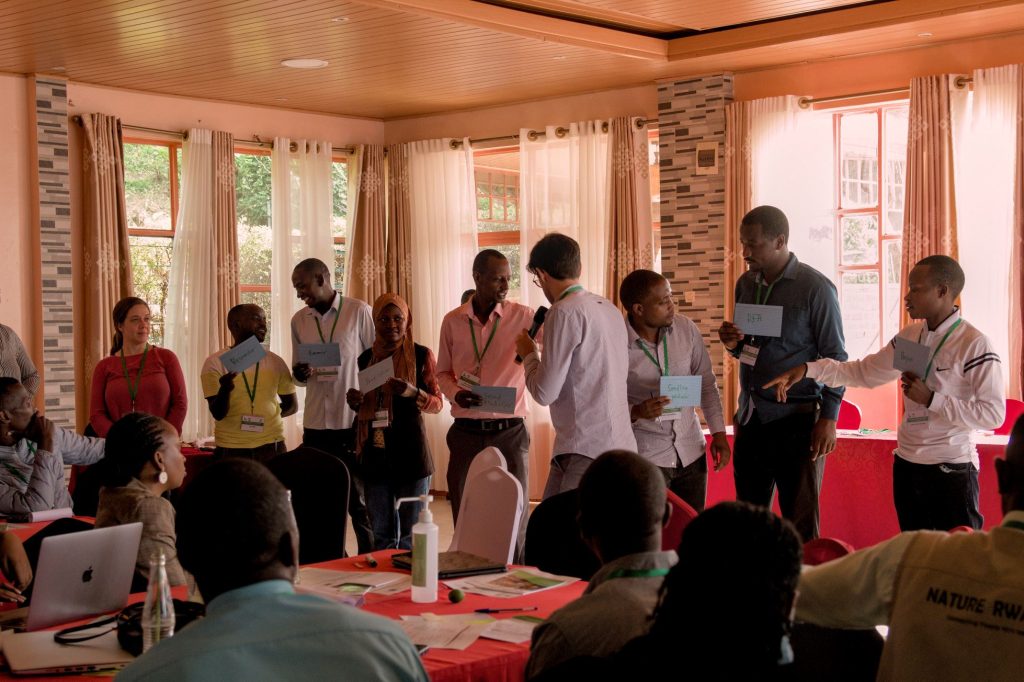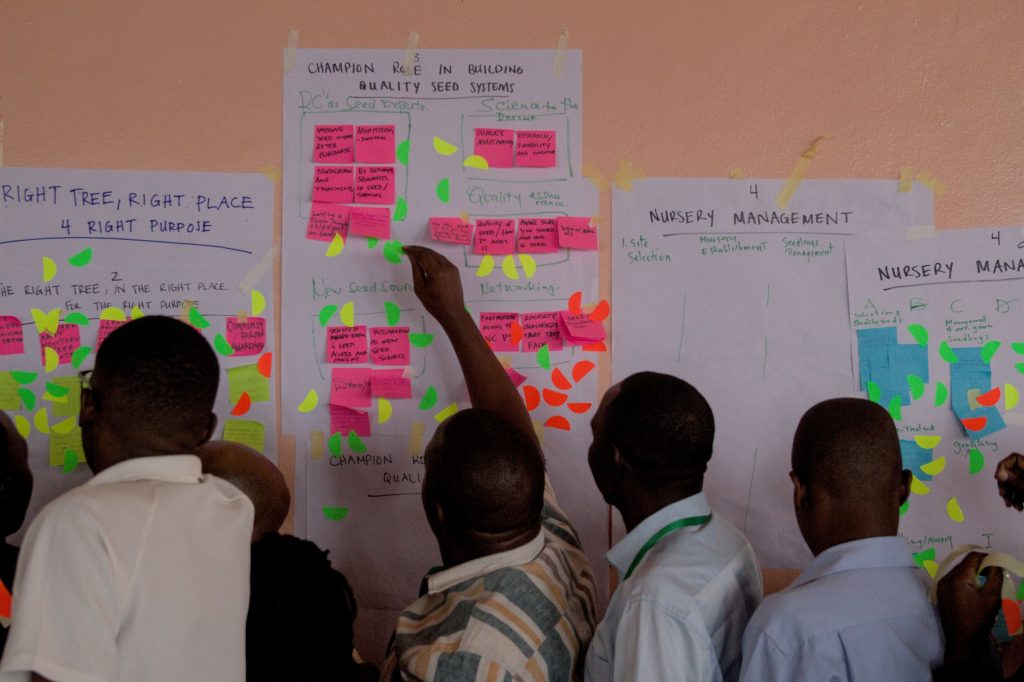
October 16-17, 2024
Bethany hotel, Karongi district, Rwanda
As part of the Quality Tree Seeds for Africa project, in partnership with the Bezos Earth Fund, the Center for International Forestry Research and World Agroforestry (CIFOR-ICRAF) launched the Tree Seed Learning Platform in Karongi District, Rwanda.
On October 16th and 17th, Restoration Champions and Tree Seed Cooperatives gathered to identify learning priorities and address challenges related to landscape restoration in the Western Province. Discussions focused on building quality tree seed systems, strengthening the tree value chain, improving nursery management, advancing restoration efforts and promoting gender equity and social inclusion.
Restoration champions
The first day was dedicated to Restoration Champions. Participants engaged in collaborative activities to brainstorm on learning priorities , needs, strengths and challenges. Key areas of focus included establishing strategies for landscape restoration, promoting community engagement, improving seed quality and enhancing knowledge of seed sourcing, collection and nursery management.
Gender e quity and s ocial i nclusion activities allowed participants to reflect on gender roles and stereotypes within their daily lives, the tree seed sector and broader landscape restoration efforts. This was followed by an activity to build a comprehensive tree seed value chain, identifying linkages, gaps, and constraints. The day concluded with “Tree Seed Dialogues”, where Restoration Champions discussed crucial topics such as tree seed quality, storage, quality control, increasing the supply of indigenous tree seed and supporting local producers.
The day’s programme concluded with a panel discussion to explore goals for national-level learning exchanges. Panellists included representatives from partner organizations : One Tree Planted, 1 Acre Fund, World Resource Institution and CIFOR-ICRAF.
Tree seed cooperatives

The second day of the Learning Platform Launch focused on t ree s eed c ooperatives. The session started with an interactive “web of yarn” activity, in which participants held a string of yarn, introduced themselves and then threw the yarn to the next participant. The exercise symbolized the interconnectedness of the cooperatives, illustrating the network between t ree s eed c ooperatives.
In group discussions, cooperative representatives shared their experiences in tree seed collection, processing and storage, outlined species they wish to learn more about and discussed the challenges of achieving financial sustainability .
Participants then brainstormed training topics related to seed collection and processing. Through these exercises and discussions, seed cooperatives voiced the need for stronger cooperation between Rwanda Forest Authorities and seed collectors, as well as greater opportunities for seed provision in Rwanda.
The Learning Communities established during the Tree Seed Learning Platform will continue to develop, with plans to connect through future workshops and training sessions facilitated by CIFOR-ICRAF throughout 2025 and 2026.













